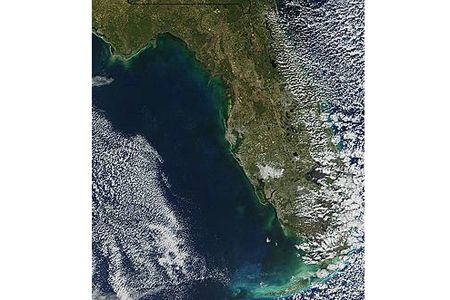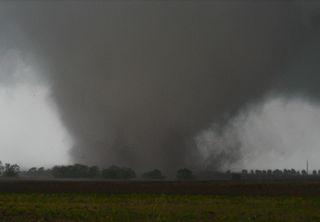
Harmful Red Tide to Sweep Across Southwest Florida

This article was provided by AccuWeather.com.
A red tide may be seen across parts of the southwestern Florida coast through Thursday, prompting the Tampa National Weather Service to release a Beach Hazards Statement Tuesday.
The term "red tide" is used to describe a bloom of harmful algal species called Karenia brevis, which can cause respiratory problems in humans and animals.
"Red tides can have significant environmental impacts and threaten the health of some people," said Richard Edwing, director of NOAA's Center for Operational Oceanographic Products and Services.
Respiratory irritation in humans can occur when an algal bloom of the red tide organism is present along the coast and winds blow the aerosol it produces on shore, according to the National Weather Service.
Symptoms associated with a red tide are typically temporary and can include coughing, sneezing, and itching and tearing eyes. Symptoms may be worse in those who suffer from asthma, emphysema or other chronic respiratory disorders.
Red tides can also be harmful to marine life. Reports of dead fish have already been received from Charlotte County, Fla.
Sign up for the Live Science daily newsletter now
Get the world’s most fascinating discoveries delivered straight to your inbox.
The red tide beach hazard is in effect for Sarasota, Charlotte, Northern Lee, Central and Southern Lee Counties, according to the NWS Service.
NOAA Respiratory Impact Forecast by County:
Sarasota County: Alongshore/Gulf side and in the Bay Regions patchy moderate respiratory impacts are possible through Thursday.
Charlotte County and Northern Lee County: Alongshore/Gulfside patchy moderate respiratory impacts are possible through Thursday. In bay regions, patchy high respiratory impacts possible through Thursday.
Central and Southern Lee County: Alonshore/Gulfside patchy moderate respiratory impacts are possible through Thursday.
AccuWeather.com. All rights reserved. More from AccuWeather.com.
The only sure thing about weather forecasts is that they’re wildly different all over the planet. Test your knowledge on the wild ranges in temperature, precipitation and more.
Extreme Weather Facts: Quiz Yourself












